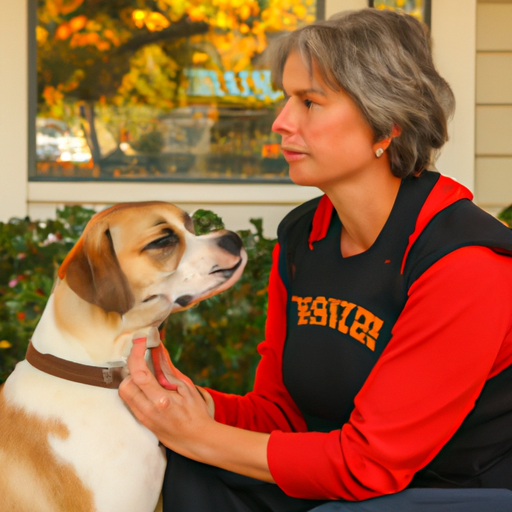Understanding Your Dog’s Aggression
Understanding the root cause of your dog’s aggressive behavior is the first step towards managing it. Aggression in dogs can stem from numerous sources, such as fear, frustration, or a lack of socialization.
- Fear-induced aggression: Dogs, like humans, have a fight-or-flight response. When cornered or scared, they may choose to fight.
- Frustration aggression: This can occur when a dog’s desires or movements are restrained, provoking an aggressive response.
- Social aggression: Dogs who are not properly socialized during their early life may exhibit aggression towards other dogs or people.
How to Manage Aggression Effectively
Managing your dog’s aggression requires patience, understanding, and consistency. Here’s how you can do it:
- Identify Triggers: Identify what triggers your dog’s aggressive behavior and try to avoid these situations when possible.
- Desensitization and Counterconditioning: Gradually expose your dog to its triggers while rewarding calm behavior.
- Professional Help: If your dog’s aggression is severe or persistent, consider seeking the help of a professional dog trainer or behaviorist.
Utilizing Positive Reinforcement
Positive reinforcement is an effective way to manage aggression in dogs. This method involves rewarding your dog for good behavior, which in turn encourages them to repeat that behavior.
Here’s a simple table to illustrate a possible positive reinforcement plan:
| Stimulus | Response | Reward |
|---|---|---|
| Seeing other dogs | Calm behavior | Treat |
| Loud noises | No aggression | Praise |
| Strangers approaching | No barking | Favorite toy |
The Role of Medication in Treating Aggression
In some cases, medication may be necessary to manage aggression in dogs. Always consult with your vet before starting any medication regimen. Medication is typically used in conjunction with behavioral therapy and is not a substitute for it.
Keeping Everyone Safe
While managing your dog’s aggression, it’s important to keep everyone safe, including your dog, yourself, your family, and anyone else your dog may encounter.
- Use a muzzle: A muzzle can prevent bites and keep everyone safe during training sessions.
- Secure your dog: If your dog is prone to aggression, ensure they are securely confined when visitors are present.
- Warn others: If your dog is aggressive towards strangers, consider using a warning sign or bandana on your dog when in public.
FAQ
Q: Can aggression in dogs be fully cured?
A: While the aggressive behavior can be managed, there’s no guarantee that it can be fully cured. It depends on the dog and the cause of the aggression.
Q: Does neutering or spaying help with aggression?
A: Neutering or spaying can sometimes help reduce aggression, especially if the aggression is related to hormonal issues.
Q: Can I use punishment to stop my dog’s aggression?
A: Punishment is likely to worsen your dog’s aggression. Positive reinforcement is a more effective and humane approach.
Q: Should I give up on my aggressive dog?
A: It’s understandable to feel overwhelmed by an aggressive dog, but with patience, consistency, and the right help, many dogs can learn to manage their aggression.



